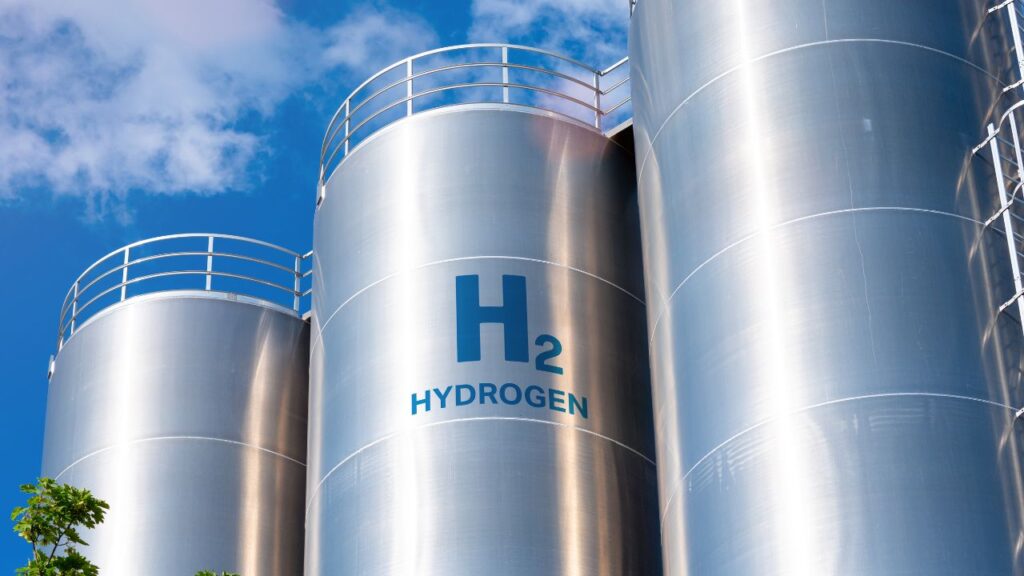DeepTech startup Hydgen, a pioneer in large-scale green hydrogen generation, has secured USD 5 million in a mix of equity and debt funding. The round was led by Transition VC, a venture capital firm focused on energy transition, with participation from Cloudberry Pioneer Investments (Europe), Moringa Ventures (Singapore), and strategic family offices from India and Singapore.
The fresh capital will power Hydgen’s goal to deliver on-site, on-demand, and ultra-pure hydrogen at affordable costs through its proprietary Anion Exchange Membrane (AEM) electrolyser technology. The company’s approach merges the cost advantages of alkaline systems with the high efficiency of PEM technology, eliminating the need for expensive platinum-group metals.
Technology Redefines Hydrogen
Hydgen’s innovation enables industries to produce hydrogen locally, solving supply chain challenges and reducing dependence on centralised infrastructure. “Our AEM electrolysers allow companies to generate hydrogen on-site at competitive costs, preparing them for a cleaner and more efficient future,” said Manipaddy Krishna Kumar, Co-founder and COO of Hydgen.
Over the past year, the company has successfully deployed pilot projects across India, Singapore, and Southeast Asia, catering to industries, research institutions, and mobility applications. Many of these partners have now scaled up to commercial operations, reflecting Hydgen’s strong technology maturity and growing market traction.
Investors are viewing Hydgen as a frontrunner in the industrial hydrogen space. Mohamed Shoeb Ali, Managing Partner at Transition VC, remarked, “Hydgen is the first team capable of scaling AEM electrolysers to industrial levels while maintaining cost leadership. This is no longer research—it’s a commercially ready platform serving hydrogen-dependent industries today.”
Similarly, Khoong Hock Yun, Managing Partner at Moringa Ventures, highlighted the startup’s impact, saying, “Hydgen’s decentralised production model can redefine global hydrogen supply chains, making green hydrogen accessible and efficient.”
Expanding Manufacturing Strength
With this investment, Hydgen plans to upgrade its Mangalore production facility into a semi-automated manufacturing line. The company will enhance single-stack capacity to 250 kW and expand into new markets including Japan, Europe, and the Middle East, where industrial hydrogen adoption is growing rapidly.

Hydgen’s manufacturing and R&D operations span across India and Southeast Asia. Founded as a spin-off from the National University of Singapore, the startup combines cross-border expertise to deliver reliable and affordable green hydrogen solutions.
Deeptech Startups
Hydgen’s success is part of a broader wave of Deeptech startups emerging from Asia, focusing on science-led innovation rather than software-only models. These startups—spanning energy, manufacturing, materials, and climate technology—are driving real-world change by addressing complex industrial problems.
In India, the Deeptech ecosystem is evolving quickly with growing investor interest, thanks to supportive policies and rising demand for sustainable technologies. Hydgen stands as a key example of how engineering-driven innovation can create scalable and profitable solutions for the planet’s clean energy future.
Hydgen’s technology combines efficiency, scalability, and affordability, offering industries a realistic pathway toward decarbonisation. Its AEM electrolyser platform not only lowers hydrogen production costs but also makes on-site generation practical for sectors like chemicals, semiconductors, refining, and mobility.
By localising production and cutting transport emissions, Hydgen is helping industries transition to cleaner and more reliable hydrogen supply chains, positioning itself as a leader in Asia’s green energy transformation.
As the global race for renewable energy intensifies, Hydgen is demonstrating how Deeptech innovation can make green hydrogen accessible at scale. With its new funding, strategic partnerships, and growing global presence, the company is well on its way to transforming hydrogen generation from a challenge into an opportunity for industries worldwide.


